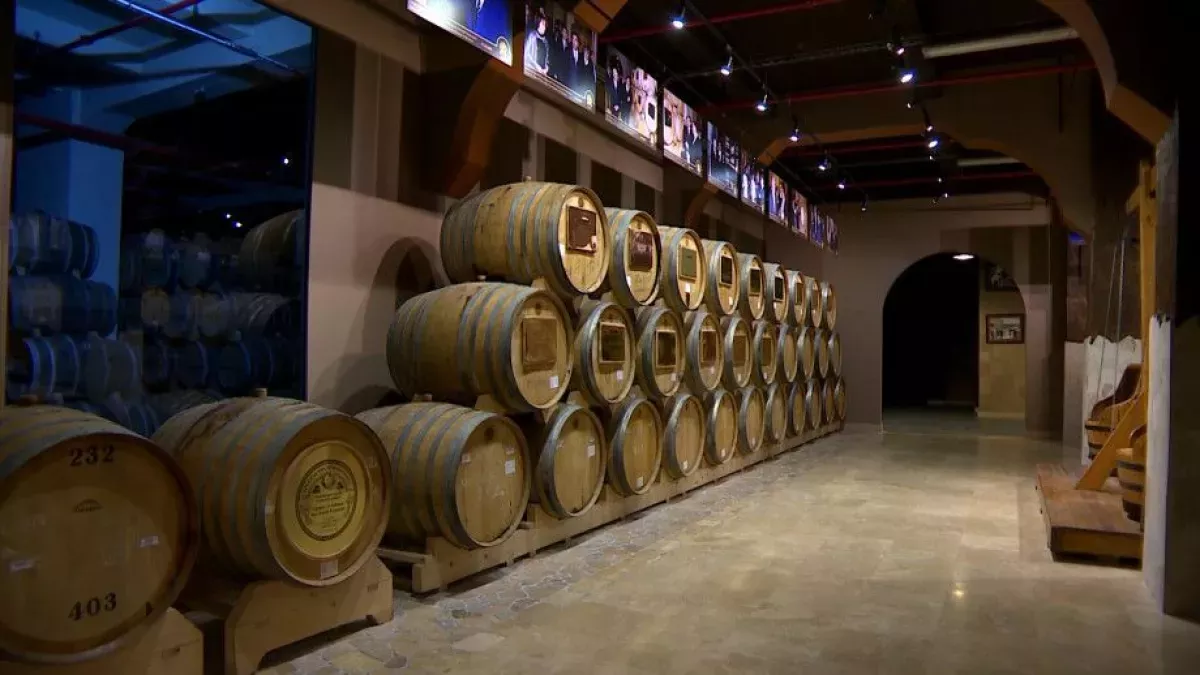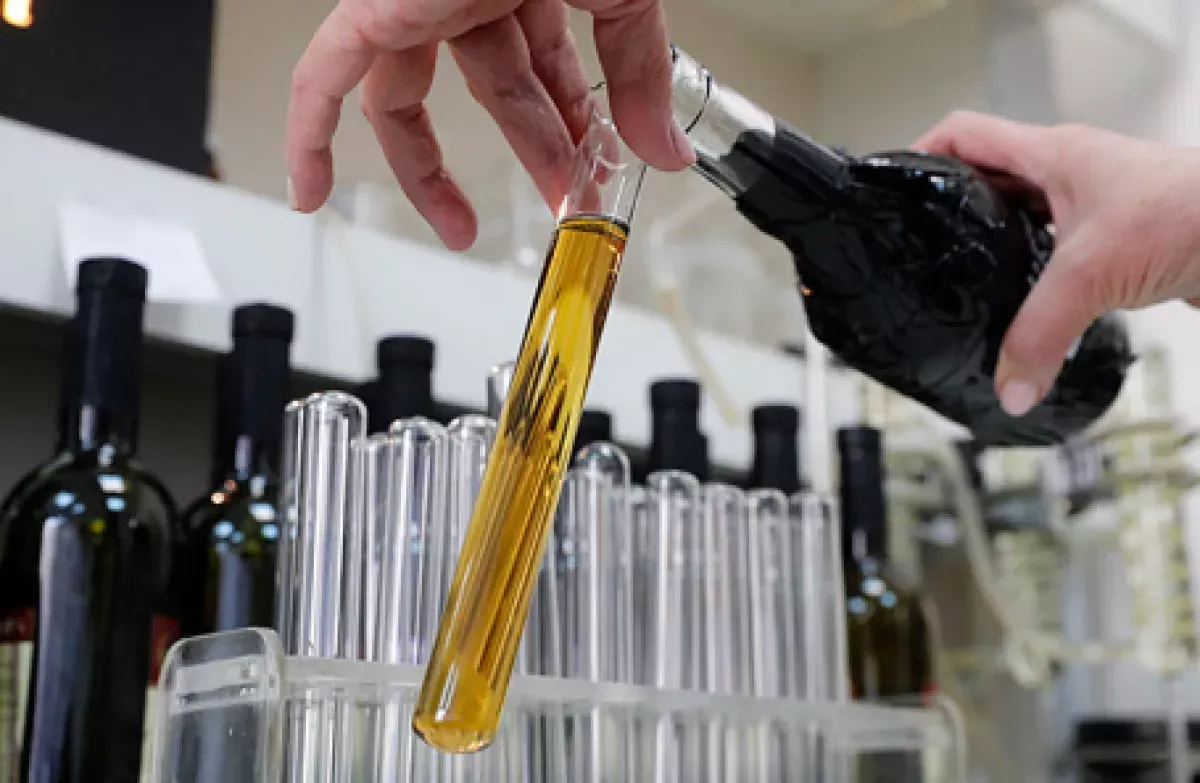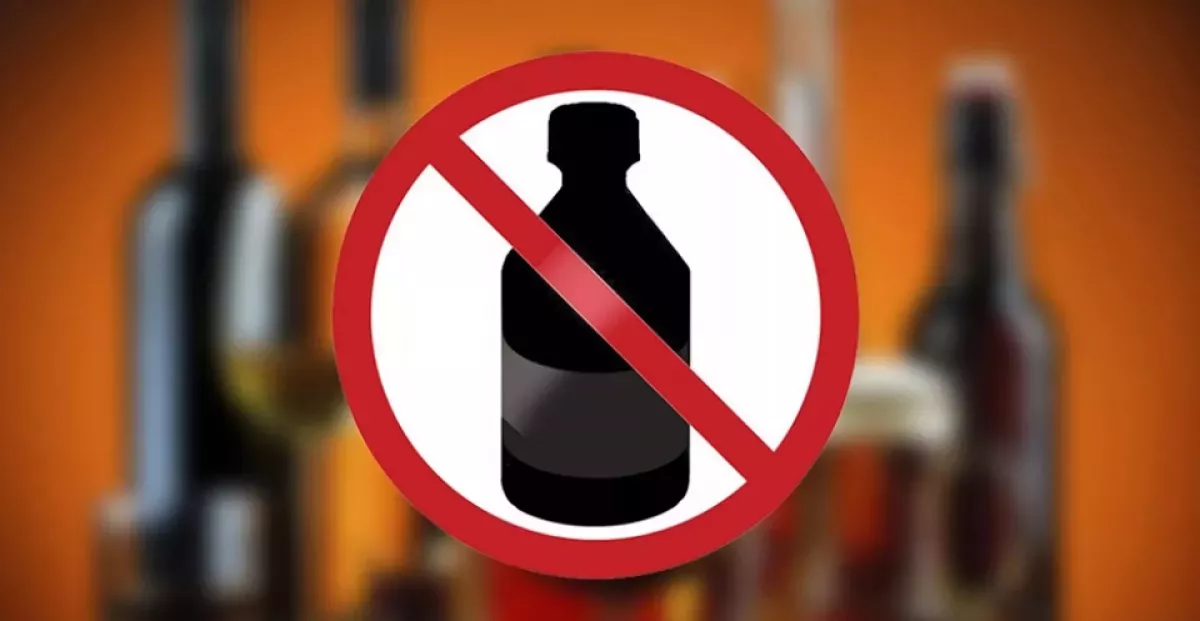Smell of counterfeit: Yerevan outraged, Tbilisi investigates Armenia opens a “cognac front”
On May 13, 2025, a protest took place near the Georgian Embassy in Yerevan. Armenian producers and exporters of alcoholic beverages blocked the roads near the diplomatic mission to express their dissatisfaction with recent changes in the policy of the Georgian authorities, who now require laboratory testing for all alcoholic products entering Georgia — regardless of whether the goods are destined for Georgia itself or merely transiting through the country.

Armenian producers and exporters of alcoholic beverages, including “Armenian cognac,” argue that the new regulations create obstacles for trucks transporting Armenian products to Russia. Lorries carrying alcohol have been stuck for weeks at the Armenian-Georgian border. This, in turn, has led to multimillion-dollar losses for producers, exporters, and transport companies alike.
One of the protest participants, Hayk Shakhnazaryan, told journalists that Georgian authorities are not stopping trucks from all Armenian companies. At present, vehicles from only four companies are stuck at the Georgian customs terminal.
The protesters met with the Georgian Ambassador to Armenia, Giorgi Sharvashidze. The demonstrators were assured that an official statement would be issued by Tbilisi.
Regardless of what that statement may say, some things are already clear.
First, there are indeed concerns about the quality of alcoholic products crossing the Armenian-Georgian border. Second, there is a risk that substandard goods could end up on the Georgian consumer market.
In 2023, a similar situation occurred with queues of trucks carrying "Armenian cognac." However, at that time, the delays were not at the Armenian-Georgian border but at the Georgian-Russian border. Starting from March-April 2023, the Russian customs service began to control all batches of cognac imported from Armenia. These measures were taken following numerous cases of counterfeit alcoholic products from the Republic of Armenia entering the Russian market, which prompted a response from Rosalkogolregulirovanie (the Russian Federal Service for Alcohol Market Regulation).

Specifically, in a warning document signed by the deputy head Elena Afanasenko, it was stated that the circulation and purchase of cognac from three brands had to be stopped — “Armenian Cognac AVZ,” “Armenian Fortress aged 8 years,” and “Armenian Cognac 5 years.” Expert analyses found flavourings, phenolic compounds, and alcohols “not of cognac origin,” in other words — ordinary cheap alcohol, possibly even technical-grade alcohol, in these beverages.
When the Russian customs inspected batches of “Armenian cognac” transiting through Georgia, they could decide to send the products for laboratory testing based on the inspection results. Trucks often waited at checkpoints for the results — from one week up to a month. Very often, laboratory analysis confirmed that counterfeit products were being imported into Russia disguised as “Armenian cognac,” and as a result, the “cognac” was sent back.
However, in 2023, Armenians did not picket the Russian Embassy in Yerevan demanding their products be allowed through without laboratory analysis, as they are doing now at the Georgian Embassy. Why? After all, the demands of the Russian authorities then and the current demands of the Georgian authorities are largely similar.
Perhaps this is because, in 2023, Armenian nationalists still hoped that Russia would “stand up” for the remnants of the separatist “Artsakh” on Azerbaijani territory, which were then in their final days, and later assist with the “evacuation” of war criminals from the separatist regime’s leadership by Russian military forces. Therefore, there was no particular “alcohol grievance” against Russia in Armenia at that time.
Despite all the control measures taken by the Russian authorities, the quality of the “Armenian cognac” supplied to Russia has not significantly improved.
On August 20, 2024, more than a year after the intensified inspections began, the association “Anticounterfeit” published a study showing that almost 90% of “Armenian cognacs” sold in Russian stores were deemed unsafe for health.

For the analysis, 200 samples of “cognac” from more than 20 brands produced by ten of the largest Armenian manufacturers were purchased. The samples were bought in stores across most Russian federal retail chains and sent for testing to an independent laboratory at the All-Russian Research Institute of Brewing, Non-Alcoholic and Wine Industry.
“In 177 of them, that is, 89% — 9 out of 10 samples — violations were detected. In almost half, non-grape spirits were found. Grape-based spirits are exactly what actually makes the drink a cognac. Only 23 samples fully complied with the GOST standards and Russian Federation legislation,” the study reported.
Based on these findings, the association “Anticounterfeit” sent appeals to the General Prosecutor’s Office, the Federal Customs Service, and Rosalkogoltabakcontrol (the Federal Service for Alcohol and Tobacco Market Regulation), requesting stricter control over the import of alcoholic products from Armenia—taking into account their transit through Georgia—as well as restrictions on the circulation of low-quality alcohol in wholesale and retail trade.
Russian customs officers began conducting more thorough inspections of “Armenian cognac,” detaining shipments, sending them for testing, and increasingly refusing their import. Problems arose for those Armenian businessmen who produced counterfeit products using technical alcohol, water, dyes, and flavourings.
This raised the question: what should be done with the rejected batches of counterfeit alcohol, as well as with the raw materials, glass containers, labels, and equipment already purchased for production?
As is well known, the entrepreneurial spirit runs deep in the Armenian people — including among the aforementioned criminal “cognac businessmen.” And if they failed to supply counterfeit products to the “Russian brothers,” who after the collapse of the “Artsakh” project in 2023 became “not brothers at all” for many Armenian nationalists, then why not try to “offload” this product onto the “brotherly Georgians”?
This gave rise to some rather interesting schemes. Shipments of “Armenian cognac” arrived from Armenia to Georgia, part of which was clearly counterfeit — possibly already rejected once by Russian customs. On Georgian territory, the shipment was “split”: the more or less “usable” portion was sent onward to Russia, while the rest — the health-hazardous surrogate — was sold within Georgia itself.
Especially since there was demand for it among the flow of tourists, including those from Russia.

As a result, almost all the “Armenian cognac” sold in Georgia is counterfeit of the lowest quality. If even in Russia, after all the control measures, 90% of the shipments turn out to be substandard, one can only imagine what remains on Georgian territory.
The situation has become dangerous for the health and lives of both Georgian citizens and tourists. Therefore, the Georgian authorities’ decision to introduce laboratory testing for all alcoholic products coming from Armenia is a justified step. It is aimed at protecting consumers — both Georgians and visitors to the country.
As for Armenian producers and exporters of “Armenian cognac,” it is high time they seriously addressed the quality of their products and began cleansing their own market of counterfeiters within their ranks.
Undoubtedly, among those who blocked the roads near the Georgian Embassy in Yerevan were individuals who until recently ran criminal operations, exporting counterfeit products disguised as “Armenian cognac.”
It is also noteworthy that these same producers have never protested at the embassies of EU countries. Since 2043, the use of the name “cognac” for Armenian products has been prohibited. France, insisting on protecting the geographical indication, emphasises that cognac can only be produced on its own territory. However, Armenian producers have not voiced any complaints to Paris — and apparently have no intention of doing so.
Vladimir Tskhvediani, Georgia, exclusively for Caliber.Az








